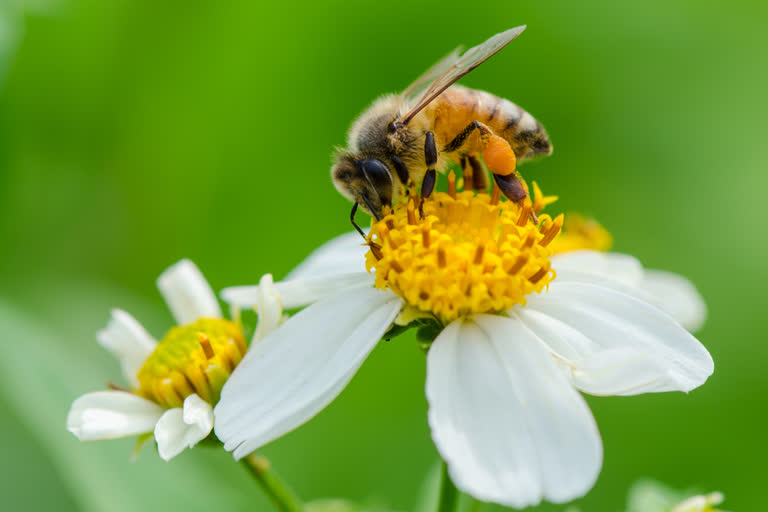Hyderabad: We all depend on the bees for our survival. Honeybees are one of the best pollinators which help in increasing the yield of various agricultural and horticultural crops through pollination support.
Further, it provides income and employment to the rural people by way of increasing the yield of various crops and providing honey and other beehive products, viz. Royal jelly, propolis, beeswax, pollen, comb honey, bee venom, etc.
It is also the source of livelihood for the rural poor. Therefore, honeybees/beekeeping is being treated as one of the most important 5th input for sustainable development of agriculture/horticulture.
As you are aware, beekeeping activities are being carried out by farmers in rural areas under the integrated farming system.
Keeping in view the importance of beekeeping, a component "Pollination Support through Beekeeping" has been incorporated in Mission for Integrated Development of Horticulture (MIDH) for the development of scientific beekeeping in the country. Further, National Bee Board (NBB) has been designated/ recognized as a Nodal Agency for the overall development/promotion of scientific beekeeping in the country. The activities of beekeeping and projects of Integrated Development of Scientific Beekeeping, etc. are also being implemented under RKVY and other schemes of this Department.
In a meeting taken by Prime Minister Narendra Modi, it has been decided that at least one district in each state should be developed as a model /role model for beekeeping. In pursuance to this, NBB has initiated action and 16 Integrated Beekeeping Development Centres (IBDCs)/Centres of Excellence (CoEs) on Beekeeping have already been commissioned/ sanctioned in the states.
Further, the government of India has also approved a new Central Sector Scheme entitled “National Beekeeping & Honey Mission (NBHM)” for overall promotion and development of scientific beekeeping in mission mode to achieve the goal of “Sweet Revolution” in the country by giving thrust on capacity building and trainings, specific focus on women, input support for promotion and production, setting up of Integrated Beekeeping Development Centres (IBDCs), other Infrastructures for processing, value addition, market support, including collection, grading, trading, etc. centres, etc., setting up of honey testing labs, bee disease diagnostic labs, development of nucleus stock & bee breeders, digitization/ online registration, etc., & R&D under 3 Mini Missions (MMs)-MM-I, MM-II & MM-III. An amount of Rs. 150.00 crores have been allotted for the year 2020-21 under the scheme.
To create awareness about scientific beekeeping and use of its products including honey, etc., and as supported by the FAO & endorsed by UN General Assembly, it was decided by the Deptt. of Agriculture, Cooperation & Farmers Welfare, Ministry of Agriculture & Farmers Welfare, Govt. of India to celebrate World Bee Day (WBD) every year on 20th May by making 2-3 days programmes.
The main theme of celebrating WBD is to "Save Bees". Programmes/ activities which may be included for this event are organizing exhibitions, conferences, seminars, honey festivals, publishing literature on the importance of honeybees/ beekeeping in agriculture/ horticulture, publicity through electronic media/ newspapers, awareness about uses of honey and other beehive products, promoting uses of honey in schools/colleges, organizing rallies of farmers/ beekeepers/ students/ villagers in villages/ towns/ cities, awareness about usage of honey and other beehive products in daily life & their importance in human health, displaying boards/sign boards, etc. on main/ public places, involving beekeepers/ scientists/ exporters/ traders/ processors, etc. of honey and other beehive products in the campaign. These all will give a boost to beekeeping activities in the states and country as a whole.
To raise awareness of the importance of pollinators, the threats they face, and their contribution to sustainable development, the UN designated 20 May as World Bee Day.
The goal is to strengthen measures aimed at protecting bees and other pollinators, which would significantly contribute to solving problems related to the global food supply and eliminate hunger in developing countries.
We all depend on pollinators and it is, therefore, crucial to monitor their decline and halt the loss of biodiversity.
If all of the world's bees died off, there would be major rippling effects throughout ecosystems.



